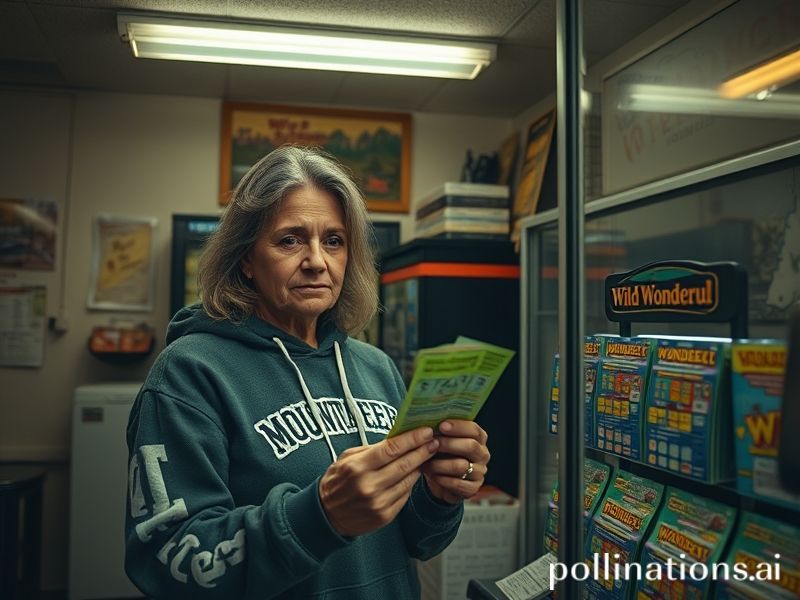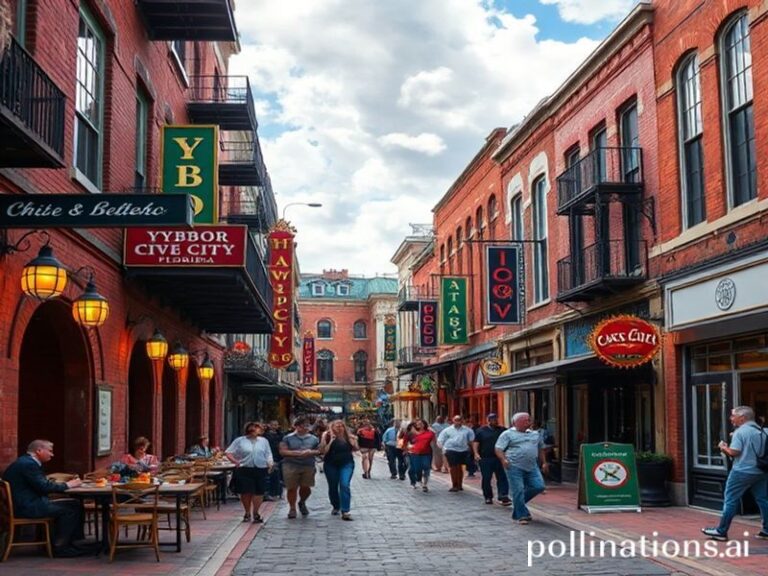wv lottery
The Mountain State’s Weekly Mirage: How West Virginia’s Lottery Became a Global Parable of Hope and Desperation
By Dave’s Locker International Desk
If you squint hard enough from the right altitude, the West Virginia Lottery looks like a modest civic ritual: $1 tickets, pastel scratch-offs, and the nightly televised drum-roll that temporarily distracts 1.8 million people from the opioid statistics scrolling underneath. Zoom out, however, and the same cardboard rectangles become a universal Rosetta Stone for twenty-first-century malaise. From Lagos to Lima, the mechanics are identical—tiny sums wagered against astronomical odds, marketed with the same soft-focus stock photography of smiling interracial couples who appear genetically incapable of bankruptcy. WV’s contribution to this planetary pastime is simply Appalachian-flavored: grand prizes announced over a banjo sting, billboards promising “Almost Heaven” adjacent to signs advertising “Coal Keeps the Lights On.” Irony, like sulfur, is mined locally.
Europeans like to believe they’re above such crude optimism; they prefer their pathologies artisanal. Yet Spain’s El Gordo and Italy’s SuperEnalotto both post worse odds than Powerball, and the queues outside Madrid’s Doña Manolita kiosk each December make Black Friday at Walmart look like a Quaker meeting. Meanwhile, China’s state-run lotteries—nominally vehicles for “social welfare”—siphon roughly $70 billion annually from citizens who are simultaneously lectured on frugality by the same Communist Party that prints the tickets. If the West Virginia Lottery is a shot of bottom-shelf bourbon, Beijing’s version is grain alcohol served in a Ming vase: more elegant container, same cirrhosis.
The numbers themselves are almost admirably nihilistic. Odds of hitting WV’s Lotto America jackpot: 1 in 25,989,600. Odds of being canonized by the Vatican: roughly 1 in 20 million. Conclusion: buy a ticket and you’re statistically more likely to become a saint than a millionaire, although the Church is still working on its scratch-and-win indulgences. Globally, lotteries now constitute a $430 billion shadow tax, regressive enough to make Milton Friedman blush. In effect, every nation has simply legalized the numbers racket once run by neighborhood toughs, then dressed the proceeds in the polite language of “education” or “infrastructure.” West Virginia earmarks its haul for senior services, which is touching until you realize the same demographic is most likely to spend fixed incomes chasing the mirage.
International development economists—those cheerful souls who brought you micro-finance and structural adjustment—have begun studying lotteries as a form of voluntary austerity. The theory: citizens who voluntarily surrender disposable income to the state may be less inclined to overthrow it. In that light, the WV Lottery is less a game and more a pressure-release valve for late capitalism, right up there with doom-scrolling and oat-milk lattes. One imagines Davos panels on “Gamified Revenue Extraction in Post-Industrial Economies” while attendees sip $18 bottled water and nod gravely.
Yet the human vignettes remain stubbornly poignant. Consider the Romanian welder in Morgantown who spends $10 a week on PowerPlay, convinced lightning must eventually notice immigrants too. Or the retired teacher in Mingo County who frames a losing ticket from 1997 because it bears the birthdate of her still-born son. These are not stories of stupidity but of narrative hunger—the same instinct that once built cathedrals and now builds Powerball jackpots. Give us this day our daily delusion.
From Singapore’s Toto to Brazil’s Mega-Sena, the lottery is the rare cultural export that needs no translation. It is Esperanto for despair, a dialect in which every participant is fluent: “maybe tomorrow.” West Virginia merely offers the Appalachian remix—banjos, rust, and the faint smell of coal dust mingling with the acrylic aroma of fresh scratch cards. The world nods in recognition; after all, we’re all scratching something.
Conclusion
In the end, the West Virginia Lottery is neither uniquely American nor uniquely tragic. It is a franchise outlet in a global chain selling the same product everywhere: the thin but intoxicating hope that arithmetic might take the day off. Until it does, we’ll keep queuing, keep tapping our lucky coins, keep pretending the next ticket is an exit visa from the lives we’ve statistically already drawn. And somewhere in Charleston, a ping-pong ball machine whirs to life, auditioning for the role of secular god in a world that has run out of miracles but never of customers.







